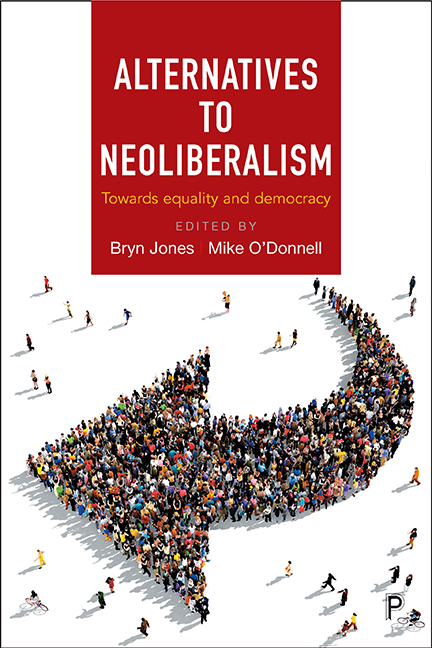Book contents
- Frontmatter
- Dedication
- Contents
- List of figures, tables and boxes
- List of abbreviations
- Notes on contributors
- Acknowledgements
- Foreword
- Editors’ preface
- Introduction: The open-market society and its opponents: an overview
- Part One Alternative paradigms and perspectives
- Part Two Reform within economic and governance restraints: pushing the boundaries
- Part Three Economic and political democracy: restoring the market-civil society balance
- Conclusion: A Brexit from neoliberalism?
- Index
two - People, planet, power: toward a new social settlement
Published online by Cambridge University Press: 05 April 2022
- Frontmatter
- Dedication
- Contents
- List of figures, tables and boxes
- List of abbreviations
- Notes on contributors
- Acknowledgements
- Foreword
- Editors’ preface
- Introduction: The open-market society and its opponents: an overview
- Part One Alternative paradigms and perspectives
- Part Two Reform within economic and governance restraints: pushing the boundaries
- Part Three Economic and political democracy: restoring the market-civil society balance
- Conclusion: A Brexit from neoliberalism?
- Index
Summary
Introduction
As we imagine what life could be like beyond neoliberalism, we must envisage a new social settlement. This would be based on the best elements of the post-war settlement, which was designed to support the market economy and achieve full employment by introducing a welfare state and a degree of governmental macroeconomic management. At the same time it would address contemporary challenges – notably deepening social inequalities, accelerating threats to the natural environment and accumulations of power by wealthy elites.
At the New Economics Foundation (NEF) we have argued the case for a settlement designed around three main goals to address these challenges: social justice, environmental sustainability, and a more equal distribution of power. The goals are interdependent and can be summed up as aiming for ‘sustainable social justice’, which is taken to require a fair and equitable distribution of social, environmental, economic and political resources between people, places and – where possible – between generations. There are no quick fixes. To build a new social settlement, we need to change systems and structures over the medium and long term, rather than looking for technical solutions to immediate problems within policy silos.
Our framing for a new settlement pays close attention to the assets embedded in people's lives and relationships and to the diverse products and features of the natural environment. In Karl Polanyi's ([1944] 1957) terms, they are ‘fictitious commodities’ and in Nancy Fraser's (2014) they are ‘conditions of possibility’ for the functioning of capitalist markets. In conventional economics, they are treated as saleable items, valued only as inputs to production. We maintain that they must be valued and nurtured as shared goods, so that they are able to flourish in the short, medium and long term.
This chapter draws on the main features of a report published by NEF called People, planet, power: towards a new social settlement. It is not a definitive plan for policy makers, but a contribution to wider debates, which highlights issues too often overlooked and calls for a radical change of direction. I begin by describing the goals and four distinctive objectives implied by the goals. I then give examples of practical proposals that follow from the goals and objectives.
- Type
- Chapter
- Information
- Alternatives to NeoliberalismTowards Equality and Democracy, pp. 41 - 58Publisher: Bristol University PressPrint publication year: 2017

